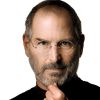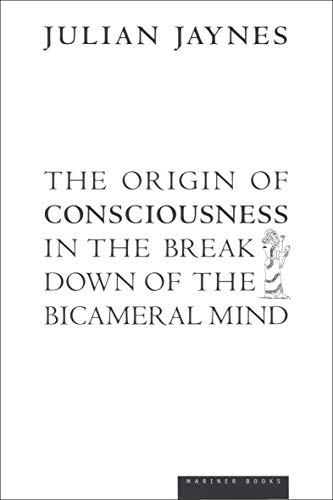19 Consciousness Books That Experts Trust and Recommend
Insights from Stephen Fry, Steve Jobs, Daniel Schacter, and more on Consciousness Books



What if the key to understanding your own mind lies within a single book? Consciousness remains one of the most profound mysteries, captivating thinkers from ancient sages to modern neuroscientists. Today, as science and philosophy converge, exploring consciousness is more critical than ever for grasping the nature of self and reality.
Leading voices like Stephen Fry, who appreciates clear philosophical guidance; Steve Jobs, who found inspiration in transformative awareness; and Daniel Schacter, a Harvard cognitive scientist fascinated by the brain-mind interface, have all found valuable insights within these pages. Their diverse perspectives showcase the rich tapestry of consciousness studies, from spiritual traditions to cutting-edge neuroscience.
While these expert-curated books provide proven frameworks, readers seeking content tailored to their unique background, interests, or learning goals might consider creating a personalized Consciousness book that builds on these insights. This approach can deepen your understanding in ways that general texts cannot, making your exploration of consciousness truly your own.
Recommended by Daniel Schacter
Harvard University cognitive scientist
“Stephen Grossberg is one of the most original and influential theorists in contemporary cognitive science and computational neuroscience. In Conscious MIND Resonant BRAIN, he takes the reader on an eye-opening tour in which he addresses fundamental problems of mind and brain from his unique theoretical perspective. This is an important book that should be of interest to anyone who wonders how a brain can give rise to a mind.” (from Amazon)
by Stephen Grossberg··You?
by Stephen Grossberg··You?
Unlike most consciousness books that focus narrowly on philosophical speculation, Stephen Grossberg's decades of pioneering research in neural network models and computational neuroscience led to this detailed exploration of how brains generate minds. You learn not only the mechanisms behind perception and cognition but also how these principles explain mental disorders, morality, and even artificial intelligence. Chapter frameworks clarify complex brain interactions, revealing why human decisions often defy logic. This book suits those intrigued by the intersection of brain biology, psychology, and computational theory, offering insights that challenge and deepen your understanding of conscious experience.
Recommended by Huston Smith
Author of The World's Religions
“No one in modern times is more qualified – no, make that ‘as qualified’ – to translate the epochal Classics of Indian Spirituality than Eknath Easwaran. And the reason is clear. It is impossible to get to the heart of those classics unless you live them, and he did live them. My admiration of the man and his works is boundless.” (from Amazon)
by Eknath Easwaran··You?
by Eknath Easwaran··You?
Eknath Easwaran’s decades immersed in Sanskrit tradition and English literature led to a translation of the Upanishads that’s both accessible and deeply insightful. You’ll explore the ancient sages’ firsthand experiences of a transcendent Reality, with chapters that illuminate the eternal Self connecting all beings. Easwaran’s introductions and notes provide cultural context, helping you grasp how these spiritual teachings resonate beyond Hinduism to universal human concerns. This book suits anyone curious about Eastern philosophy or seeking a thoughtful gateway into consciousness studies, though readers wanting a strictly academic text might find it more poetic than analytical.
by TailoredRead AI·
This personalized book explores consciousness through a lens tailored to your unique background and interests. It presents a nuanced examination of the mind’s nature, blending insights from philosophy, neuroscience, and spirituality to illuminate complex concepts in accessible terms. By focusing on topics that resonate with your goals, it offers a custom journey through theories of awareness, cognitive processes, and experiential states. The book reveals how consciousness shapes personal growth and understanding, bridging diverse perspectives into a cohesive narrative. This tailored approach ensures you engage deeply with material relevant to your specific curiosity and learning style, enhancing both comprehension and practical reflection.
Recommended by Mark Twain
Amazon.com reviewer
“Exceptionally clear, concise and insightful writings on the inseparable relationship between energy, consciousness, and existence.” (from Amazon)
by Ivan Antic··You?
by Ivan Antic··You?
What if everything you knew about spirituality and consciousness was incomplete? Ivan Antic, with over four decades practicing Zen meditation and studying ancient teachings alongside modern science, presents a rich exploration of how consciousness and existence are fundamentally united. You’ll gain insights into concepts like chakras as energetic bridges, the nature of energy and matter, and how higher states of awareness manifest in physical reality, especially through the human soul. This book suits those ready to move beyond surface spirituality toward a deeper understanding of enlightenment as unity. Its detailed chapters on energy preservation and parallel realities offer a clear framework for contemplative seekers and serious aspirants.
Recommended by Jon Kabat-Zinn
Professor of Medicine Emeritus, UMass Medical School
“Very few writers, if any, have the gravitas and journalistic cred to tackle this explosive subject—from both the outside and the inside—extract it from its nationally traumatic and irrationally over reactive past, and bring both reason and revelatory insight to it. Michael Pollan has done just that. This is investigative journalism at its rigorous and compelling best—and radically mind opening in so many ways just to read it.” (from Amazon)
by Michael Pollan··You?
When Michael Pollan set out to explore psychedelics, he didn’t just report on the science; he immersed himself in the experience and the history shaping this controversial field. You’ll learn about the latest research on substances like LSD and psilocybin, their potential for treating depression and addiction, and the cultural backlash that stalled progress in the 1960s. Pollan combines personal narrative with deep dives into brain science and therapy practices, offering insights into altered states of consciousness and what they reveal about the human mind. This book is best suited for anyone curious about the intersection of neuroscience, mental health, and spirituality, though it demands an open mind and thoughtful reflection.
Recommended by Sam Altman
CEO of OpenAI, Former Y Combinator CEO
by Julian Jaynes··You?
by Julian Jaynes··You?
What if everything you knew about consciousness was wrong? Julian Jaynes challenges the traditional view by proposing that human consciousness is a relatively recent development, emerging just three thousand years ago from a prior hallucinatory state he calls the bicameral mind. Drawing from his psychology research at Yale and Princeton, Jaynes explores how this shift reshaped human cognition, culture, and language. You’ll gain a deep understanding of consciousness not as a fixed trait but as a learned process intricately tied to historical and neurological changes, with chapters that dissect ancient texts and psychological phenomena to illustrate his thesis. This book suits anyone interested in the origins of mind, psychology, and the human experience, though its dense arguments may not appeal to casual readers.
by TailoredRead AI·
by TailoredRead AI·
This tailored book explores a rapid 30-day program designed to enhance your conscious awareness and transform your mindset. It reveals a personalized pathway that matches your background and specific goals, guiding you through focused practices and concepts that deepen understanding of consciousness. By addressing your unique interests, the book uncovers how awareness can shift daily experience and mental clarity, bridging expert knowledge with your personal learning journey. Each chapter focuses on actionable insights to reset thought patterns and cultivate mindfulness, offering a tailored approach that makes complex ideas accessible and immediately relevant. This personalized guide would examine the interplay between consciousness, perception, and transformative mindset shifts in a concise, engaging format.
Recommended by Deepak Chopra
Author and spiritual teacher
“I’ve gained deeper understanding listening to Rupert Spira than I have from any other exponent of modern spirituality. Reality is sending us a message we desperately need to hear, and at this moment no messenger surpasses Spira and the transformative words in his essays.” (from Amazon)
by Rupert Spira, Bernardo Kastrup, Deepak Chopra MD··You?
by Rupert Spira, Bernardo Kastrup, Deepak Chopra MD··You?
Drawing from decades of study in Advaita Vedanta and Direct Path teachings, Rupert Spira explores the profound nature of consciousness beyond the conventional matter-based worldview. This book challenges the assumption that consciousness arises from the brain, instead presenting it as the fundamental reality underlying all experience. You’ll engage with essays that guide you to recognize the unchanging, peaceful awareness present in every moment, illustrated through clear distinctions between experience and the knowing that observes it. Ideal if you're seeking a deeper philosophical understanding of mind-matter unity and its implications for personal peace and societal harmony.
Recommended by Michael Shermer
Publisher Skeptic Magazine, Host The Michael Shermer Show
“Best book on consciousness I’ve read. The “hard problem” will likely go the way of “elan vitale” to explain the hard problem of life. Recording an episode of my show with Anil soon. Watch this space. In the meantime read (or listen) his book!” (from X)
by Anil Seth··You?
by Anil Seth··You?
Anil Seth, a cognitive neuroscience professor with over two decades of research, challenges traditional views by proposing that consciousness arises from the brain's predictive processes rather than passive perception. In this book, you’ll explore how your brain constantly constructs your experience of reality, correcting errors moment-to-moment, which shapes your sense of self and the world. Seth blends philosophy, biology, and neuroscience, using accessible language and examples like the brain's role in body awareness and hallucinations to illuminate consciousness. If you’re curious about how subjective experience emerges from biology, this book offers a thought-provoking perspective, though it leans heavily on scientific theory over philosophical speculation.
Recommended by Donald Hoffman
Professor of Cognitive Sciences, UC Irvine
“We might suppose that the vastness of space-time, with its myriad stars and planets, comprises the preexisting stage for a ceaseless drama of life in which we are bit players. In Metahuman, Deepak Chopra persuasively invites us to turn this supposition on its head. We are the authors of space-time; we can wake up to our impressive stagecraft and embrace our true role.” (from Amazon)
by Deepak Chopra M.D.··You?
by Deepak Chopra M.D.··You?
When Deepak Chopra, a physician and pioneer in integrative medicine, explores consciousness, he invites you to question the limits of the mind and step into an expanded awareness. In this book, you uncover how to move beyond habitual thinking patterns and tap into a field of infinite possibilities, learning to transform anxiety and ego-driven demands into clarity and presence. The final section offers a 31-day guide to cultivating this awakened state, making the abstract tangible. If you're intrigued by consciousness as a practical, lived experience rather than just a philosophical concept, this book opens that door.
Recommended by Stephen Fry
Actor, writer, and broadcaster
“This book is for everyone who is in the least philosopho-curious. Amateurs like me, thrashing about in the shallows, usually have to read every sentence in a book on philosophy, however apparently simple, at least four times before understanding it (and then forgetting it all the moment we have turned the page). Not so with Philosophers on Consciousness. Here are some of the world's most notable and respected thinkers, each adding their thoughts on the field known as 'philosophy of mind', most especially on the famous 'hard problem' of consciousness, and all communicating with remarkable clarity and approachable ease. Jack Symes guides us charmingly and authoritatively through, introducing and summing up the contributions, filling the role of interlocutor and interviewer, distributing delightful inline 'info-boxes' offering explanations of concepts, characters and context as you read. He does so with a wit and freshness that enlivens without trivializing. It cannot be common to find Toblerones, Paul Rudd and Adam Sandler sharing pages with the most distinguished philosophers alive. This is a book that everyone interested in the human mind will fall on like… like a hungry student on a Toblerone.” (from Amazon)
by Jack Symes··You?
by Jack Symes··You?
Jack Symes, a philosopher and educator at the University of Liverpool, brings together some of the most influential minds in philosophy and cognitive science to grapple with consciousness—the inner world of experience that science still struggles to explain. Through remastered interviews and concise essays, you’ll explore major theories about the mind, identity, morality, and reality, all framed in accessible language peppered with engaging examples like pop culture references to lighten complex ideas. The book is structured to help you understand the 'hard problem' of consciousness and its implications beyond neuroscience, making it ideal if you want to deepen your grasp of philosophy of mind without wading through dense academic texts. While it invites curiosity, it demands thoughtful engagement to appreciate the nuances of each contributor’s perspective.
Recommended by David Chalmers
Author of The Conscious Mind
“Galileo’s Error is a manifesto for a new generation of philosophers who think we need to revise our view of the physical world to accommodate consciousness. Galileo took the mind out of matter, which was good for the science of matter but not so good for the science of the mind. Philip Goff thinks that to explain consciousness, we have to put the mind back into matter. His ideas are radical, but his arguments are rigorous and the book is a pleasure to read. I recommend it to anyone who wants to come to grips with the mystery of consciousness.” (from Amazon)
When Philip Goff first explored the philosophical roots of consciousness, he challenged the long-standing scientific view that mind and matter are separate. Instead, he proposes panpsychism—the idea that consciousness is a fundamental aspect of all physical matter, not just brains. You’ll gain insight into how this perspective reinterprets the relationship between mind and matter, drawing on early 20th-century thinkers like Eddington and Russell. This book suits anyone curious about the hard problem of consciousness and those open to a radical shift in scientific worldview, though its philosophical depth may be challenging if you prefer straightforward neuroscience.
Recommended by Rick Edwards
BBC 5 Live presenter and podcaster
“@EwanPatonPhoto1 Other Minds by @pgodfreysmith - extremely good book. Enjoy!” (from X)
by Peter Godfrey-Smith··You?
by Peter Godfrey-Smith··You?
Peter Godfrey-Smith blends his expertise as a philosopher of science and marine biologist to explore consciousness through the lens of cephalopods, especially octopuses. You’ll gain insights into how intelligence evolved independently in distant lineages, with chapters detailing octopus behavior, nervous system complexity, and their surprising problem-solving abilities. The book draws vivid connections between evolutionary biology and subjective experience, challenging you to reconsider what it means to be conscious. This work suits anyone curious about cognition beyond humans, particularly those interested in philosophy, biology, or animal intelligence.
Recommended by Sean Carroll
Physicist, Caltech & SFIscience; Mindscape podcast host
“Wild ideas are on the table--you’ll come away with an appreciation of the major conflicts and the high stakes that come with any attempt to understand how consciousness really works.” (from Amazon)
by Annaka Harris··You?
by Annaka Harris··You?
After analyzing current scientific and philosophical debates, Annaka Harris developed a clear and accessible investigation into consciousness that challenges you to rethink your understanding of the mind. Through concise chapters, she explores questions about self-awareness, free will, and the nature of experience, including how consciousness might be a fundamental property of matter or an evolved illusion. You’ll gain insights into definitions and theories from neuroscience and philosophy, like the idea of panpsychism and the challenges artificial intelligence poses. This book suits anyone curious about the mind’s mysteries, especially those interested in the intersection of science and philosophy, though it may leave those seeking technical neuroscience wanting more.
Recommended by Thomas Nagel
Philosopher at The New York Review of Books
“In From Bacteria to Bach and Back, his eighteenth book (thirteenth as sole author), Dennett presents a valuable and typically lucid synthesis of his worldview . . . . Dennett is always good company . . . . he writes with wit and elegance . . . . distinctive.” (from Amazon)
by Daniel C. Dennett··You?
by Daniel C. Dennett··You?
Drawing from decades as a philosopher at Tufts University, Daniel C. Dennett offers a detailed exploration into how minds evolved through natural selection and cultural evolution. You’ll gain insights into the origin of consciousness, the role of memes in shaping thought, and how language turbocharges cognitive development. Chapters like the one on meme competition reveal how cultural evolution crafts minds capable of creativity and comprehension. This book suits anyone curious about the intersection of biology, philosophy, and cognitive science — but it demands careful attention and a willingness to engage with complex ideas.
Recommended by Preston Pysh
Aerospace engineer & investor, podcast host
“@RayDalio So true Ray! I recently read an amazing book on the subconscious that you would really enjoy. It's called, Consciousness and the Brain: Deciphering How the Brain Codes Our Thoughts.” (from X)
by Stanislas Dehaene··You?
by Stanislas Dehaene··You?
Stanislas Dehaene challenges the old belief that consciousness can't be studied scientifically by using advanced brain imaging techniques to uncover how our brains encode thoughts. You gain insight into the neural networks that make consciousness possible, from the global workspace theory to how specific neurons respond to stimuli like faces and objects. This book suits those intrigued by the science behind awareness, especially if you want a glimpse into experimental cognitive psychology and neuroimaging. Chapters revealing the biological machinery behind conscious experience provide a grounded, clear window into one of neuroscience's biggest questions.
Recommended by The New Scientist
“Koch's mind-stretching book provides a rich feast, leaving me with a desire to understand more about this often difficult theory.” (from Amazon)
by Christof Koch··You?
Christof Koch, with decades spent as President and Chief Scientist at the Allen Institute for Brain Science, challenges the idea that consciousness arises from computation alone. You explore a theory grounded in integrated information that treats consciousness as the fundamental feeling of being alive, extending beyond the brain to many animals. Chapters delve into how this framework explains neural correlates of consciousness and even informs clinical tools like consciousness meters. This book suits those curious about the biological and philosophical underpinnings of subjective experience, though if you seek purely computational or AI-focused perspectives, this might not align with your expectations.
Recommended by Steve Jobs
Co-Founder and Former CEO of Apple and Pixar
by M D Richard Maurice Bucke··You?
by M D Richard Maurice Bucke··You?
Richard Maurice Bucke, a Canadian psychiatrist with firsthand experience in mental health care, developed a thought-provoking theory about the evolution of human consciousness. In this book, you explore three distinct stages of consciousness development, culminating in "cosmic consciousness," a rare and transformative state beyond ordinary self-awareness. Bucke draws on examples from historical figures like Buddha and Walt Whitman to illustrate this progression, offering detailed descriptions of the emotional and intellectual experiences involved. If you're curious about mystical experiences and the potential future of human cognition, this book offers a unique perspective grounded in both clinical insight and poetic inspiration.
Recommended by Domenick Lombardozzi
Actor and storyteller
“Great book , helped me as well.” (from X)
Drawing from his extensive experience as a filmmaker, David Lynch explores how meditation deepens creative consciousness in this introspective work. He shares his unique metaphor of 'catching big fish'—ideas surfacing from profound levels of awareness that fuel artistic innovation. You’ll gain insight into the relationship between expanded consciousness and creativity, supported by Lynch’s personal stories and reflections on the Unified Field concept from modern physics. This book suits anyone curious about enhancing creativity through mindfulness, especially artists and thinkers seeking to access deeper inspiration.
Recommended by Mother Teresa
Catholic nun and humanitarian leader
“[A] beautiful gift of writing... [You] spread joy, love and compassion through what you write. The fruit of these three is peace, as you know... Mother Teresa Praise for Power vs Force: Perhaps the most important and significant book I've read in the past ten years.” (from Amazon)
by David R. Hawkins M.D. Ph.D··You?
by David R. Hawkins M.D. Ph.D··You?
David R. Hawkins, M.D., Ph.D., draws from his extensive career as a psychiatrist and spiritual teacher to guide you through transcending the ego's limitations and advancing your consciousness. This book explores the Map of calibrated levels of Consciousness, originally introduced in his earlier works, and offers detailed explanations on moving beyond false self-identities. You learn to identify and overcome emotional and psychological barriers, opening pathways toward inner peace and higher awareness. The text blends psychology, spirituality, and philosophy, making it suitable for those ready to deepen their understanding of self and explore spiritual growth beyond surface-level concepts.
by David R. Hawkins M.D. Ph.D··You?
by David R. Hawkins M.D. Ph.D··You?
David R. Hawkins, M.D., Ph.D., leverages decades of clinical and spiritual research to map human consciousness through a unique energy scale. His methodical use of muscle testing and over 250,000 calibrations presents a spectrum from destructive states like shame and guilt to elevated ones such as love and enlightenment. You’ll gain insight into how these consciousness levels influence emotions, behaviors, and personal evolution, supported by practical exercises and illustrative charts. This book suits those seeking a structured understanding of consciousness that bridges psychology, philosophy, and spirituality, offering tools to navigate life with greater awareness and intentionality.
Get Your Personal Consciousness Guide Fast ✨
Stop sifting through many books. Get tailored insights in minutes to fit your unique consciousness journey.
Trusted by 75+ consciousness enthusiasts and experts
Conclusion
These 19 books weave together themes of neuroscience, philosophy, spirituality, and evolutionary biology to present a multidimensional view of consciousness. Whether you’re drawn to scientific explanations or spiritual reflections, this collection offers pathways to deepen your understanding.
If you're grappling with the origins of consciousness, start with Julian Jaynes's historical exploration or Daniel Dennett's evolutionary perspective. For insights into the brain's workings, consider Stanislas Dehaene or Anil Seth. Spiritual seekers might find David R. Hawkins or Rupert Spira transformative. For rapid practical insights, blending Michael Pollan's psychedelic science with David Lynch's creativity-focused meditation can spark fresh perspectives.
Alternatively, you can create a personalized Consciousness book to bridge the gap between general principles and your specific situation. These books can help you accelerate your learning journey and expand your grasp of one of humanity's most elusive mysteries.
Frequently Asked Questions
I'm overwhelmed by choice – which book should I start with?
Start with 'Being You' by Anil Seth for a clear, brain-based introduction to consciousness. It blends accessible neuroscience with philosophy, giving you a solid foundation before diving into more specialized texts.
Are these books too advanced for someone new to Consciousness?
Not at all. Books like 'Conscious' by Annaka Harris and 'Philosophers on Consciousness' by Jack Symes are approachable for beginners, offering clear explanations without heavy jargon.
What's the best order to read these books?
Begin with foundational perspectives such as 'The Origin of Consciousness in the Breakdown of the Bicameral Mind,' then explore neuroscience texts like 'Consciousness and the Brain,' and finally branch into spiritual and philosophical works.
Should I start with the newest book or a classic?
Both have value. Newer books like 'Metahuman' offer contemporary insights, while classics like 'The Upanishads' provide timeless spiritual context. Your choice depends on your interest in science or spirituality.
Do I really need to read all of these, or can I just pick one?
You can start with one that aligns with your curiosity. Each book offers unique angles on consciousness, so pick one that resonates and explore others as your interest grows.
How can I apply these complex ideas to my personal interests or situation?
While these expert books provide deep insights, personalized content can tailor these ideas to your goals and background. Consider creating a personalized Consciousness book to bridge expert knowledge with your unique context and accelerate your learning journey.
📚 Love this book list?
Help fellow book lovers discover great books, share this curated list with others!
Related Articles You May Like
Explore more curated book recommendations


















